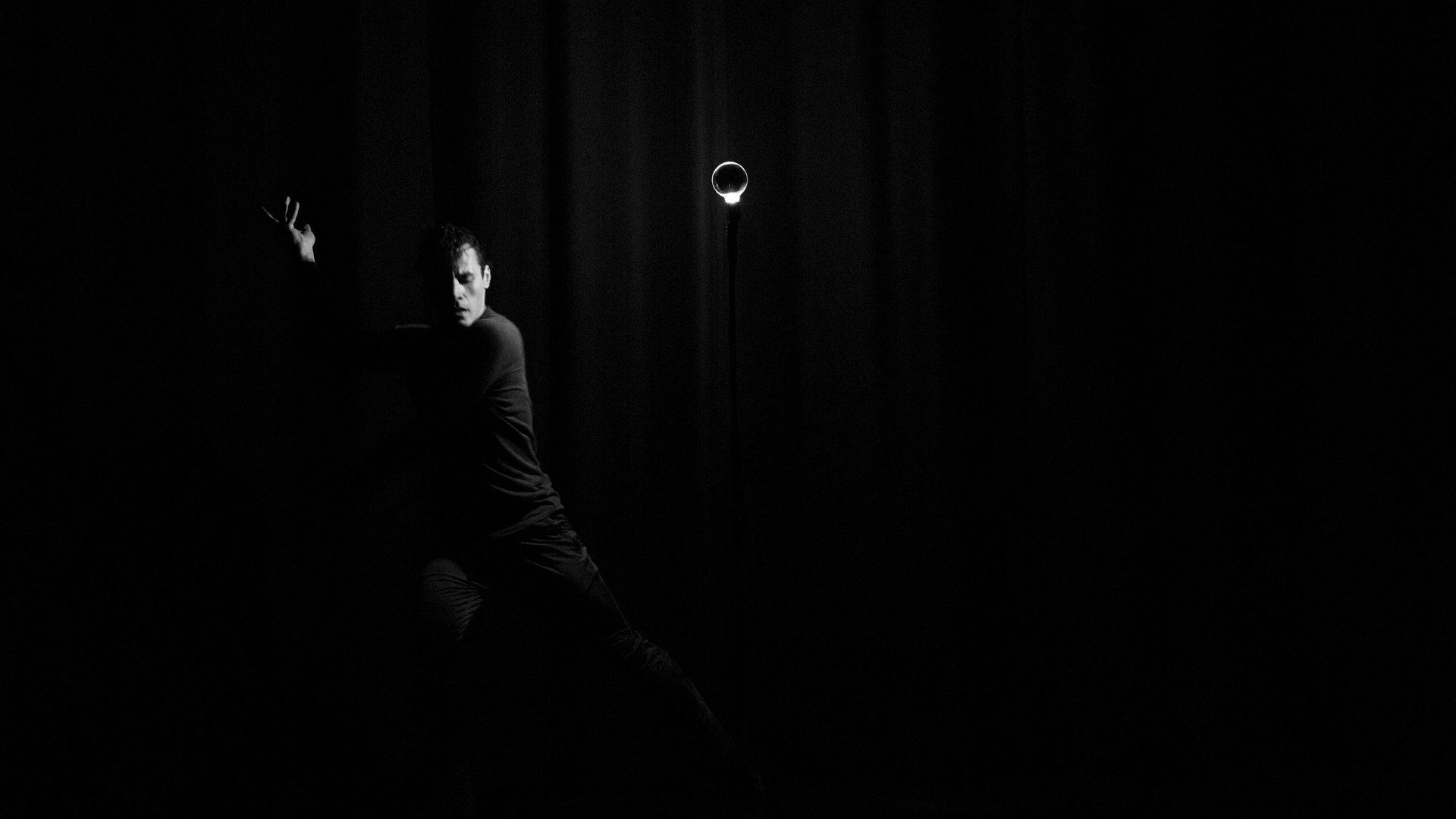BRAMATO
'Ultimately, it is the desire, not the desired, that we love.'
Friedrich Nietzsche in Beyond Good and Evil


© Serena Nicoletti
Commission for Collettivo MoDem/ Compagnia Zappalà Danza
Première : 05th March 2017 - Scenario Pubblico - Catania/ Italy
Dancers: Camilla Montesi, Francesca Conti, Ludovica Messina, Martina Auddino
Light & Sound Design: Samir Calixto
Music: V. Bellini/ C.W. Gluck






© Serena Nicoletti
BRAMATO
Choreographer Samir Calixto has developed a work that focuses on unveiling the timeless aspects of dance through the clash between iconic cultural references and the most primal features of our existence. Classical music, literature, spirituality and philosophy are elements which often have a strong presence in his works. For this special commission in Catania, Calixto continues his research into a universe where dance reflects the state of impermanence intrinsic to our human condition. By being confronted to a strong musical and choreographic frame, the dancers will be led to engage their entire beings on stage by delving into a choreography that proposes an uncompromising crossing between musicality and intense physicality. In this process, humanity is revealed on stage exposing our own vulnerabilities, frailties and beauty.
ABOUT THE PERFORMANCE
'Vulnerability, fragility and beauty are the elements which characterize Bramato, the creation by the Brazilian - yet active in the Netherlands since 2004 - Samir Calixto, to represent the impermanence inherent to the human condition. The four female dancers are immersed in an atmosphere from the world's creation, they are primordial creatures, initially alone, showered by an intensifying warm glow of almost blinding lights visible only on their backs, moving slowly, with arm movements indicating something which lies above. Bodies searching for their own lives. Then, they form a pulsating unity between gasps and a crescendo of speed and energy in which the rhythm ceases abruptly, scattering the group and leaving only the heavy breathing as a current created by the times of their lives. We are inside of a landscape of sidereal sounds, of voices and rustles, of angelic voices, baroque melodies, mixed with musical sensibility by Calixto, whose choreography reveals before our eyes a fragility in the vocabulary, with sequences that taste of deja vu.'
-Sipario.it
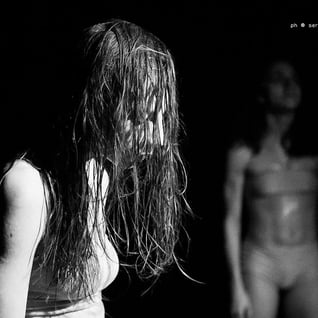
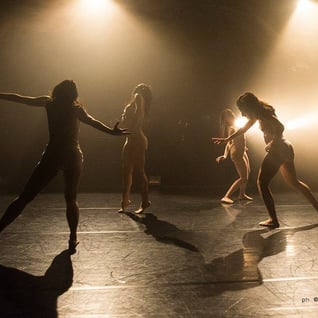
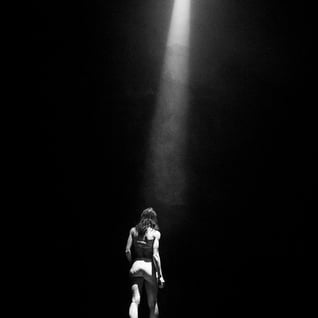
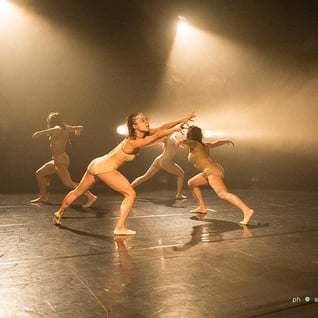
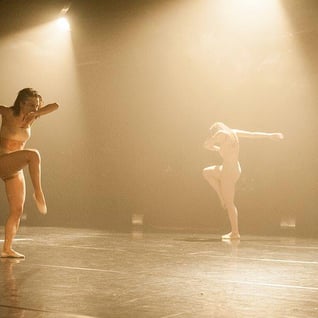
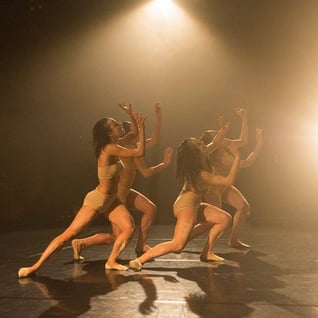
© Serena Nicoletti
